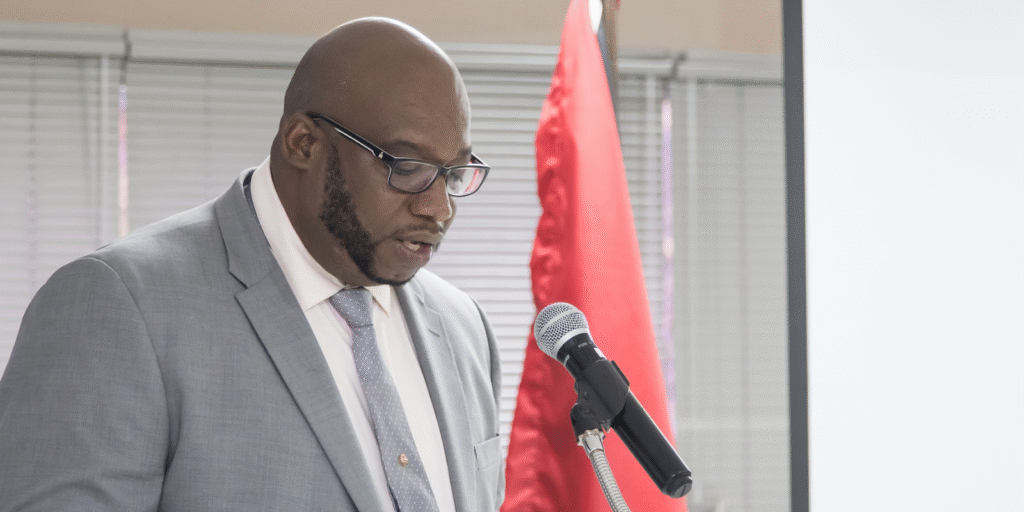How a filmmaker from Trinidad and Tobago is redefining the power of narrative to drive measurable social change worldwide
It was 3 a.m. in Port of Spain when Steven Edwards made the decision that would reshape his understanding of storytelling forever. Sitting in his cramped apartment, surrounded by scripts and storyboards, he wasn’t thinking about box office numbers or festival circuits. He was thinking about the young people in his community, the ones caught between hope and despair, the ones whose stories weren’t being told. In that moment of quiet revelation, Edwards realized that entertainment was never going to be enough. Stories needed to do more than move audiences; they needed to move communities.
The turning point came when Kenton Peterson was put to kneel down and shot in his head. “That was the major turning point for me.” It was at that moment that Edwards knew his work went far beyond entertainment. This tragic event marked the moment when storytelling transformed into a tool for deep societal impact. Edwards realized that the stories he told weren’t just meant to entertain—they had the power to change lives, to prevent such tragedies, and to address the root causes of violence and hopelessness.
That late-night epiphany, sparked by this brutal reality, would eventually position Edwards as one of the world’s leading innovators in using arts and technology to ignite transformation in vulnerable communities. While the film industry chases profits and prestige, Edwards has spent over 15 years proving that storytelling can serve as infrastructure for social change—a strategic tool that doesn’t just reflect reality but actively reshapes it.
From Hollywood Training to Global Impact
Edwards didn’t stumble into his revolutionary approach. He earned it through rigorous training under Dov S-S Simens, the legendary Hollywood mentor who guided industry titans like Quentin Tarantino and Christopher Nolan. But where others used that world-class foundation to pursue commercial success, Edwards saw something different: the untapped potential of merging cinematic craft with social innovation.
“The training gave me the technical excellence,” Edwards reflects, “but my community gave me the purpose.” This fusion of Hollywood precision with grassroots authenticity became the cornerstone of Steven Edwards Productions, his pioneering company that treats storytelling as a catalyst for measurable change.
The early years weren’t without skepticism. Traditional filmmakers questioned his focus on social impact over commercial viability. Social workers doubted whether creative interventions could produce tangible outcomes. Edwards found himself navigating between two worlds that rarely intersected, building bridges where none had existed before.
The Breakthrough That Changed Everything
The turning point came with Toco Tim and the Turtles, a project that would validate Edwards’ vision on the global stage. The film garnered over 40 international festival selections and awards, including recognition as Best Mobile Film across multiple continents, from India, to Africa, to the United States, and Europe. But beyond the accolades, the project demonstrated something revolutionary: that stories rooted in local authenticity could resonate universally while driving specific behavioral change.
Media coverage from Trinidad highlighted how Edwards was using theatre and technology to transform lives, marking a new chapter in Caribbean creative innovation. The success opened doors that had previously seemed locked, from PBS Newshour features to ministry adoptions of his programs.
A Different Kind of Creative Force
 What sets Edwards apart isn’t just his artistic vision, it’s his systematic approach to transformation. While many creatives focus on art as expression, Edwards treats storytelling as infrastructure. His programs aren’t designed for applause; they’re engineered for change.
What sets Edwards apart isn’t just his artistic vision, it’s his systematic approach to transformation. While many creatives focus on art as expression, Edwards treats storytelling as infrastructure. His programs aren’t designed for applause; they’re engineered for change.
This philosophy manifested in groundbreaking initiatives like Theatre for Tots to Teens, launched in 2019 as the world’s only online platform for Caribbean content specifically designed for children. The project preserved cultural traditions while introducing young audiences to technology-enhanced learning experiences.
Edwards’ work on gender-based violence exemplifies his impact-driven approach. His collaboration with local TikTokkers reached younger demographics through platforms they already used, while his PBS-featured film series sparked global dialogue among policymakers and advocates.
Building Systems of Change
The true measure of Edwards’ innovation lies not in individual projects but in the ecosystems he creates. His Transformation Through Theatre and Technology methodology has been adopted by schools, correctional institutions, and international development organizations. His presentation to arts students at Georgia State University demonstrated how theatre arts could transform vulnerable communities, sharing insights that influenced emerging artists and educators.
Recognition followed from multiple quarters. The Ministry of Planning acknowledged his contributions to national development. Commonwealth Youth Awards celebrated his innovative approaches. The Inter-American Development Bank featured his work, highlighting projects like “Life in Laventille” that addressed urban challenges through creative intervention.
Edwards made history as the first Caribbean theatre company accepted at the Toronto Fringe Festival in 2015, breaking barriers that had stood for decades. His Act it Out Theatre Festival became legendary for presenting five plays in five days, a feat that established new standards for Caribbean theatrical production.
The Philosophy Behind the Impact
“God has blessed me not just to tell stories, but to build systems that transform communities,” Edwards explains. This perspective reveals the spiritual and strategic dimensions of his work. He doesn’t just create content; he engineers movements that integrate storytelling, technology, and cultural authenticity to produce measurable outcomes.
His approach to youth engagement through projects like “The Ochro Song” demonstrates how cultural preservation and social messaging can coexist. Educational showcases addressing child abuse prove that difficult conversations can happen through accessible artistic formats.
Even his voice work for the Olympics Waze Coach App in 2016 reflected his commitment to reaching audiences through every available channel, understanding that transformation requires meeting people where they are.
From Vision to Global Movement
 Today, Edwards’ influence extends far beyond Trinidad and Tobago. His programs have been studied, implemented, and replicated across education systems, correctional facilities, and global development networks. Video testimonials from participants and documentation of his methodologies provide evidence of sustained impact across diverse communities.
Today, Edwards’ influence extends far beyond Trinidad and Tobago. His programs have been studied, implemented, and replicated across education systems, correctional facilities, and global development networks. Video testimonials from participants and documentation of his methodologies provide evidence of sustained impact across diverse communities.
What began as a late-night realization about the power of storytelling has evolved into a proven framework for social transformation. Edwards has demonstrated that when creative excellence meets purposeful innovation, the results extend far beyond entertainment value.
If your organization seeks not just a collaborator but a catalyst, someone who transforms vision into measurable impact through the strategic power of storytelling, Steven Edwards represents the creative force that turns empathy into action and audiences into allies for lasting change.
About Steven Edwards Productions
Steven Edwards Productions stands as a pioneering force in purpose-driven storytelling, merging the arts and technology to create measurable social transformation. Founded by visionary filmmaker and theatre director Steven Edwards, the company has earned international recognition through projects like the award-winning “Toco Tim and the Turtles” and ground-breaking programs featured on platforms including PBS Newshour. With training from Hollywood mentor Dov S-S Simens and over 15 years of community-focused innovation, Edwards has established systems that turn creative content into tools for education, empowerment, and social change.
Watch Kenton Peterson’s story here:


